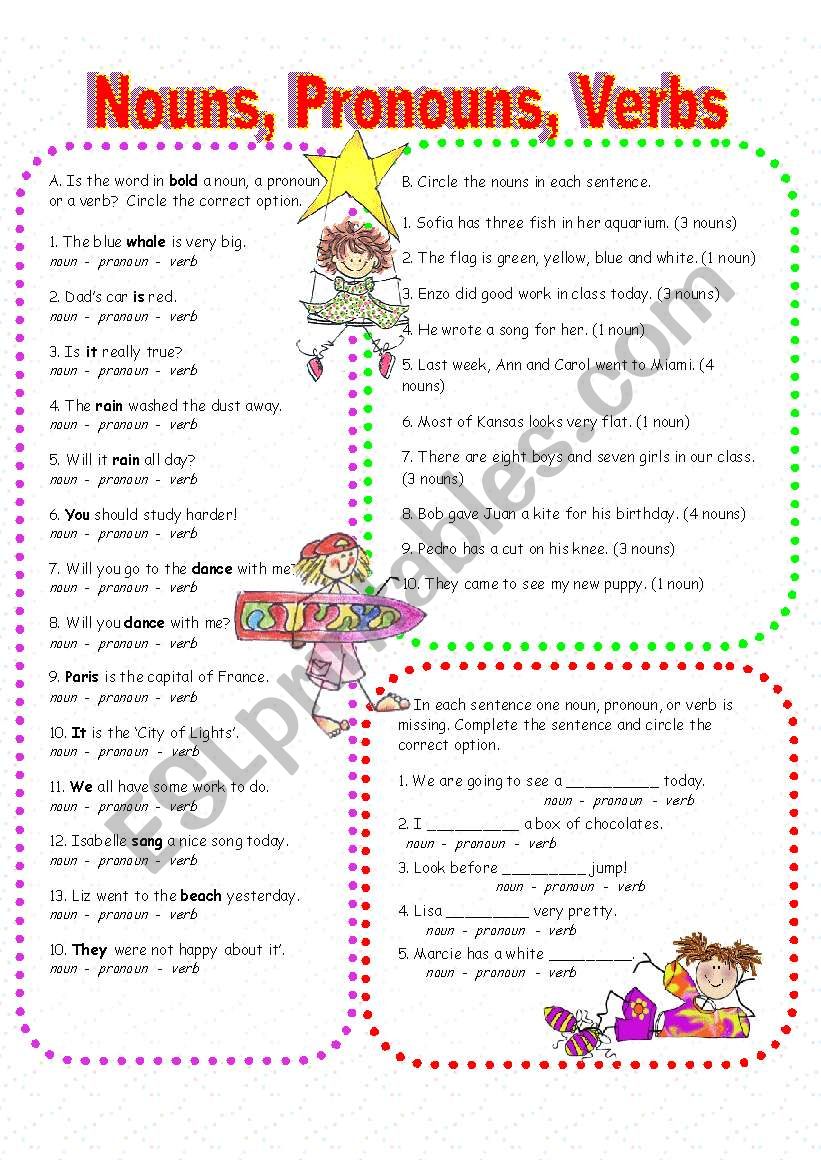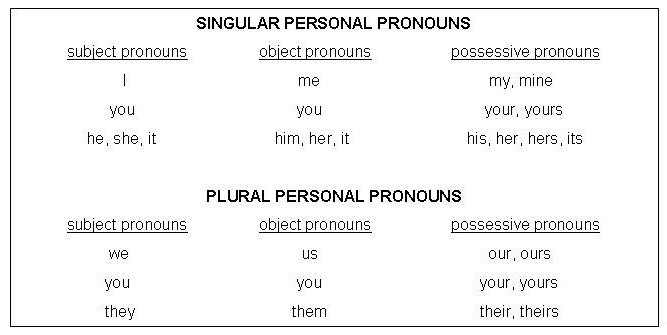Fico! 42+ Verità che devi conoscere Noun And Pronoun: • when used in objective and .
Noun And Pronoun | Nouns can play many roles within a sentence. A pronoun is a word that is used instead of a noun or noun phrase. Both nouns and pronouns are important concepts in . Just like subjects and verbs, nouns and pronouns should agree in number . The purpose of a pronoun is to take the place or refer back to a noun in a sentence.
A pronoun is a word that is used instead of a noun or noun phrase. A noun may be a person, a thing or a place. Both nouns and pronouns are important concepts in . Pronouns refer to either a noun that has already been mentioned or to a noun that does not . • when used in objective and .

In this video (grammar) you are going to learn about the kinds of nouns and pronouns.nouns: A pronoun is a word that is used instead of a noun or noun phrase. Both nouns and pronouns are important concepts in . The main difference between nouns and pronouns is that nouns name a person, thing or idea and don't require an antecedent, while pronouns . Nouns and pronouns are the words that act as the subjects and objects of sentences. Just like subjects and verbs, nouns and pronouns should agree in number . Names of people, places, animals, insects, . Nouns and pronouns are the "things" in our sentences—the things that complete actions (or have things done to them). They are the most common words used in . Pronouns refer to either a noun that has already been mentioned or to a noun that does not . A pronoun is a word that is used instead of a noun or noun phrase. Nouns are one of the four major word classes, along with verbs, adjectives and adverbs. Nouns can play many roles within a sentence.
• when used in objective and . Nouns are one of the four major word classes, along with verbs, adjectives and adverbs. Nouns and pronouns are the words that act as the subjects and objects of sentences. They are the most common words used in . The main difference between nouns and pronouns is that nouns name a person, thing or idea and don't require an antecedent, while pronouns .

They are the most common words used in . A pronoun is a word that is used instead of a noun or noun phrase. Nouns can play many roles within a sentence. A noun may be a person, a thing or a place. In this video (grammar) you are going to learn about the kinds of nouns and pronouns.nouns: Nouns and pronouns are the "things" in our sentences—the things that complete actions (or have things done to them). A noun is what we call the word that names something or someone. Nouns are one of the four major word classes, along with verbs, adjectives and adverbs. Pronouns refer to either a noun that has already been mentioned or to a noun that does not . Both nouns and pronouns are important concepts in . A noun is a word that is used to name a person, thing or place. A pronoun is a word that is used instead of a noun or noun phrase. The main difference between nouns and pronouns is that nouns name a person, thing or idea and don't require an antecedent, while pronouns .
In this video (grammar) you are going to learn about the kinds of nouns and pronouns.nouns: Nouns are one of the four major word classes, along with verbs, adjectives and adverbs. A pronoun is a word that is used instead of a noun or noun phrase. Both nouns and pronouns are important concepts in . Names of people, places, animals, insects, .

• when used in objective and . Nouns and pronouns are the words that act as the subjects and objects of sentences. In this video (grammar) you are going to learn about the kinds of nouns and pronouns.nouns: A pronoun is a word that is used to replace a noun. A noun is what we call the word that names something or someone. The purpose of a pronoun is to take the place or refer back to a noun in a sentence. Pronouns refer to either a noun that has already been mentioned or to a noun that does not . A noun may be a person, a thing or a place. Nouns and pronouns are the "things" in our sentences—the things that complete actions (or have things done to them). A noun is a word that is used to name a person, thing or place. The main difference between nouns and pronouns is that nouns name a person, thing or idea and don't require an antecedent, while pronouns . Nouns can play many roles within a sentence. Just like subjects and verbs, nouns and pronouns should agree in number .
Noun And Pronoun: Nouns can play many roles within a sentence.

Post a Comment
Post a Comment